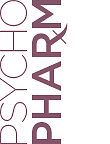Coronary artery disease is the leading cause of death in the United States and leads the list of contributors to the global burden of disease.
About 20 percent of coronary disease patients also experience depression—a factor associated with an increased risk of recurrent myocardial infarction and death.
Current guidelines urge cardiologists to screen for depression and then to treat or refer for treatment as needed. As such, interest has grown in defining optimal depression treatments for this patient population. Which antidepressant is best?
Evidence Base for SSRIs Grows
Multiple randomized, placebo-controlled trials have demonstrated the efficacy of SSRIs (including sertraline [1], citalopram [2], and fluoxetine [3]) for depression treatment in coronary disease patients.
Most recently, the
EsDePACS trial in Korea randomized patients two to 14 weeks after a confirmed acute coronary syndrome event who were experiencing symptoms of depression to placebo or escitalopram (flexible dosing from 5 to 20 mg/day, for 24 weeks).
The researchers found escitalopram was superior to placebo with respect to the primary outcome, change in the Hamilton Rating Scale for Depression (between groups difference, 2.3 points; p = .018, effect size = 0.38), and also for secondary outcomes including the Montgomery-Asberg Depression Rating Scale, Beck Depression Inventory, and Clinical Global Impression-Severity of Illness scale (4).
There were no differences between escitalopram and placebo with respect to cardiovascular safety measures or adverse events except for complaints of dizziness, which was more frequent in subjects taking escitalopram.
Escitalopram can now be added to the list of SSRIs with evidence of efficacy for treatment of depression in coronary disease patients and a low adverse effect burden over the acute treatment period. There is no comparable evidence base for other antidepressants, except for tricyclic agents, which have fallen out of favor due to orthostatic hypotension, effects on cardiac conduction, and anticholinergic effects.
It is important to note that while the acute safety of SSRIs has been examined in this patient population, the safety of long-term SSRI use and possible beneficial effects on cardiovascular outcomes have not yet been proven.
The use of SSRIs, or any antidepressant, requires attention to interactions with other medications the patient is prescribed. For example, strong inhibitors of cytochrome 2D6, such as fluoxetine and paroxetine, may increase blood levels of beta-blockers (which are a mainstay of coronary disease treatment), causing bradycardia. SSRIs can also interact with antiplatelet agents and anticoagulants to raise the risk of bleeding. Concerns about dose-related QT interval prolongation with citalopram have stirred controversy, but may be overstated.
Patients May Prefer Psychotherapy
One underappreciated aspect of psychopharmacological treatment of depression in coronary patients is that most patients identified through screening don’t want to take more medicines.
A
study by Karina Davidson, Ph.D., and colleagues found that when coronary disease patients with high depression symptoms on screening were offered a first-line choice of brief psychotherapy, medication, neither, or both, most chose neither or psychotherapy (5). Although some patients ended up using medication as well, this patient-preference-driven, stepped approach led to high patient satisfaction with treatment and a large treatment effect.
Bottom line: The best therapy for a patient with coronary artery disease and depression symptoms may be to hold off on antidepressants, at least at first, especially if stepped care with psychotherapy and careful follow up is available. There is a good case to be made for escitalopram and sertraline as the default drugs of choice. ■

